The Rosemary Pountney Collection at the University of Reading
A Guest Blog by Professor Jonathan Heron (University of Warwick)
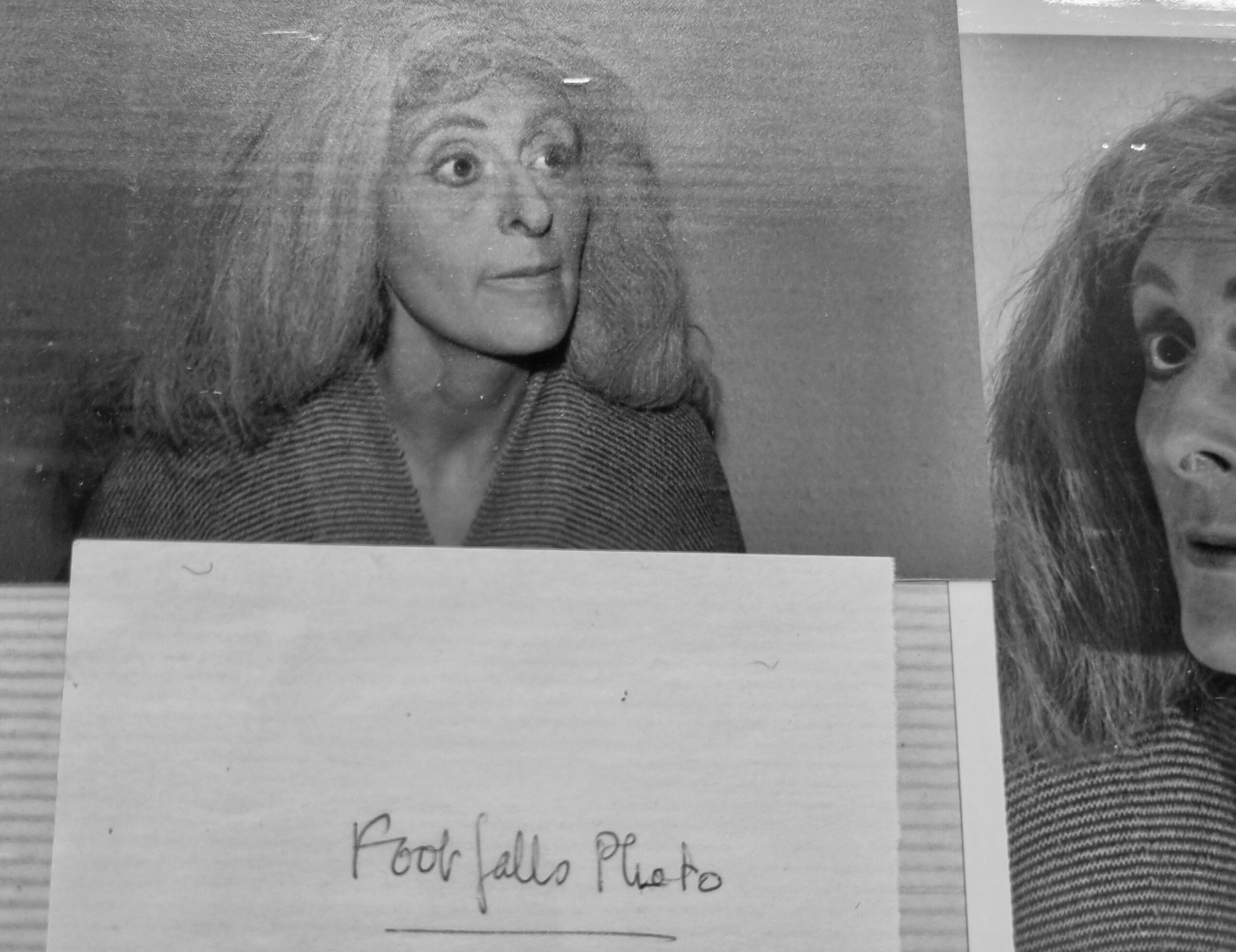 [Image 1: Production photo of Rosemary Pountney, Footfalls, 1978, image by author]
[Image 1: Production photo of Rosemary Pountney, Footfalls, 1978, image by author]
In the early hours of 20 March 2024, Rosemary Pountney’s recorded voice gave the 250,000th reading of Lessness by Samuel Beckett, some eight years since she passed. The online project End/Lessness has been running since 2017, and is available here as an indefinite memorial to her work on Beckett’s writing: [weblink].
Rosemary was a friend, colleague, mentor and collaborator who offered me guidance during my doctoral years and taught me much about performing and reading Beckett’s writing. Between 2009 and 2015, I was able to work alongside her in Oxford, Southampton, Warwick and York. In 2012 I acted as her associate director on a revival of Footfalls and Rockaby for DNS Bergen in Norway which we rehearsed in Oxford and then transferred to Trinity College Dublin as part of the annual Samuel Beckett Summer School. Throughout this period, she supported my own development as a theatre practitioner, giving notes on my theatre company’s 2009 revival of Rough for Theatre II and Ohio Impromptu, advising me on aspects of my own academic research and professional practice, and we recorded her reading of Lessness at Warwick Arts Centre in 2010, which forms the basis of the End/Lessness project, which has been described by Laura Salisbury as follows:
[The piece] uses recordings of the actor and Beckett scholar Rosemary Pountney reading out the sections from Lessness that are then played out according to computer pseudo-random generation. The possibility of ghostly endurance is particularly emphasised by the fact that the pieces of text were recorded when Pountney knew her death was imminent. But the piece is also not quite endless. Computer systems are not energyless or workless, despite an imaginary dominated by matter seemingly becoming immaterial – clouds and the ether. The material server power that underpins End/Lessness and our access to it puts back in work and organising energy into the online world and the online text; at least temporarily, it therefore opposes the thermodynamic movement towards disorder and heat death. (Salisbury, 2023)
I have written about the genesis of the work in terms of recalling Coetzee’s 1973 essay on Lessness as ‘linguistic game’, which we moved online as an ‘endless’ – If not infinite – sound installation (after Haahr and Drew, 2000):
In our collaboration with James Ball (creator of the ‘disorder algorithm’ and the website itself) we used the computational model of time to play every permutation of the sentences, without repetition, from 2017 until completion. Ball describes this process as follows: ‘to be able to create an iteration is one thing, but to be able to be sure that it hasn’t already happened is another… so the way of doing it is to make it pseudo-random… a pre-existing sequence that would carry on for a long time and would never repeat… so time’ (unpublished interview). This focus on temporal permutation, rather than textual re-iteration, resonates with Coetzee’s notion of the text as ‘linguistic game’ as well as other Beckettian permutations in performance. (Heron, 2018).
For Salisbury, our project extends our understanding of literary text in terms of its extended temporality and its cyclical, digital materiality for those who listen online.
The losses over time are also real and can be measured through intensity and affect. Rosemary is gone, which pains those who knew her, even as traces of her live on. Despite the repeated term ‘endlessness’, then, both Heron’s and Pountney’s End/Lessness and Beckett’s Lessness are only theoretically negentropic. The material text as given, as produced, published and read by material bodies, indeed suggests a time that inches forwards rather than repeats endlessly, backwards as forwards, through randomly generated equivalence. Instead, it is the intensity of lessness in the shadow of endlessness that is evoked: an anachromistic grey of modulating intensities. A grey on grey instance of difference is momentarily subtracted from endless grey, endless indifference, and gathered in a textual word heap. (Salisbury, 2023)
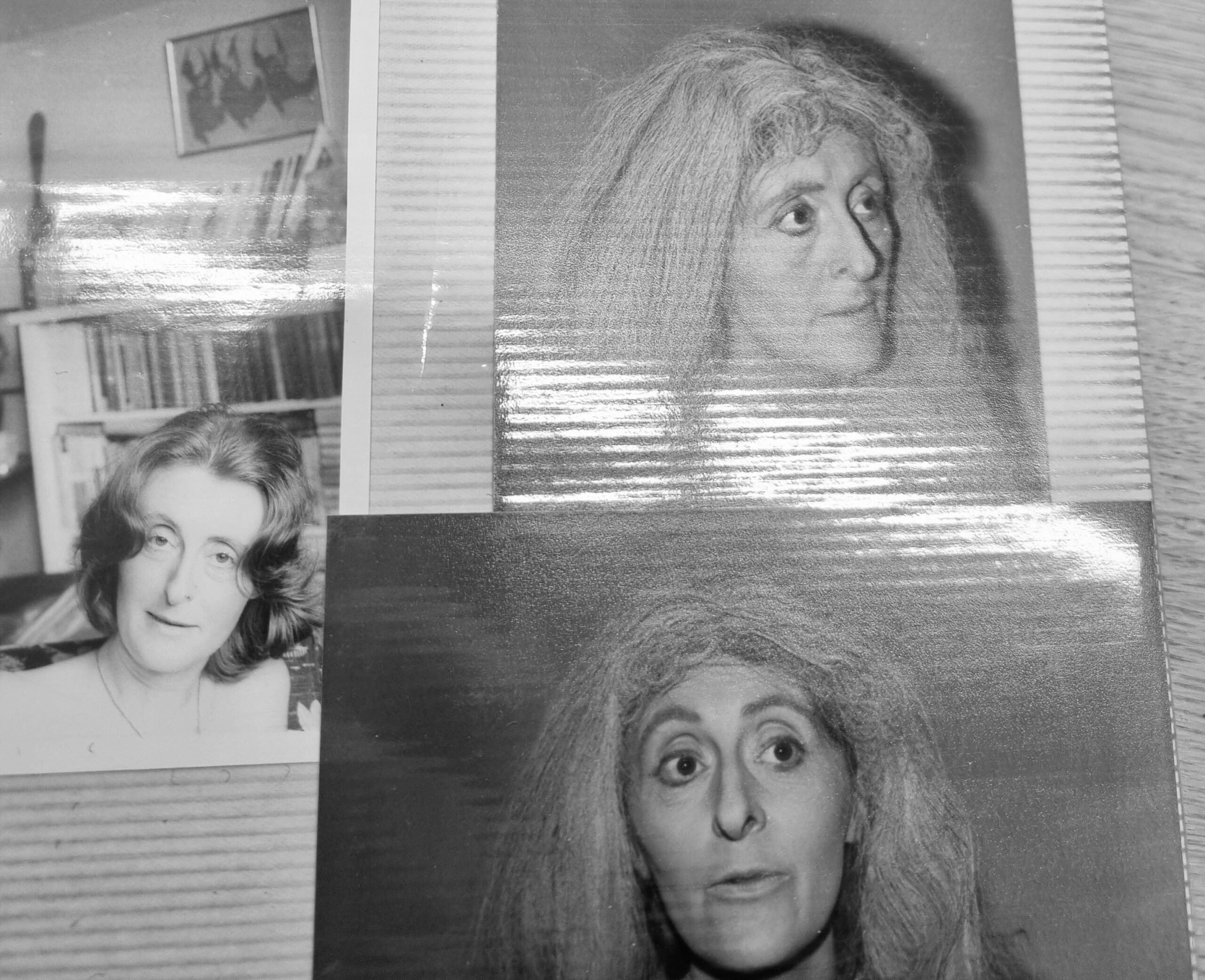 [Image 2: Production photo of Rosemary Pountney, Footfalls, 1978, image by author]
[Image 2: Production photo of Rosemary Pountney, Footfalls, 1978, image by author]
Special Collections at the University of Reading have completed a full box list of the Rosemary Pountney collection, ahead of a cataloguing process to follow. The collection is unique within Beckett studies, forming a body of work in practice and research from the 1970s to the 2010s. Her collection contains the first doctoral thesis on Beckett at the University of Oxford, submitted in 1978, which informed her monograph Theatre of Shadows (1988) alongside significant correspondence with Barbara Bray and others over many decades. Her productions of Not I, Footfalls and Rockaby are extensively documented in files, photographs and video, with a rich collection of sound media across multiple formats, covering the period 1978—2015. It is extremely rare to have one actor’s voice performing the same texts across such an extended period of theatre history and therefore there is potential for future research projects on this aspect of the archive. As Diana Taylor has shown, there is a tension ‘between the archive of supposedly enduring materials (i.e. texts, documents, buildings, bones) and the so-called ephemeral repertoire of embodied practice/knowledge (i.e. spoken language, dance, sports, ritual)’ (2003:19).
The materiality of the performance archive has been captured and celebrated elsewhere (e.g. Heron and Johnson, 2014; Johnson and Heron, 2020), but this is perhaps best documented in Rosemary’s own words (Pountney, 2014):
I first played May in Footfalls at the Dublin Theatre Festival in 1978, directed by Peter O’Shaughnessy. Rachel Burrows (one of Beckett’s Modern Language students at Trinity College Dublin) played V. In 1980 we performed the play again at Oxford Playhouse, directed by Gordon MacDougall. This production was revived in 1981 and, after performances at University College Dublin, was taken to the Beckett conference at Ohio State University, where it was performed with the world premiere of Ohio Impromptu and A Piece of Monologue with David Warrilow. Since Rachel Burrows was unable to fly to the USA for medical reasons, I had to perform May with V as a recorded voice, and it was fiendishly difficult to synchronise my replies and footsteps with the vocal cues. When in 2011 I was invited by the Norwegian National Theatre and the University of Bergen to perform Rockaby/Berceuse, a further play was required to complete the evening and I began to consider whether it might be possible to do another experimental Footfalls. A Bergen experiment would need to be far more radical than the Ohio performance, since I had developed bone problems and was unable to walk without a stick. In the original production I had been directed to pace rather like a lion in a cage. (Pountney, 2014)
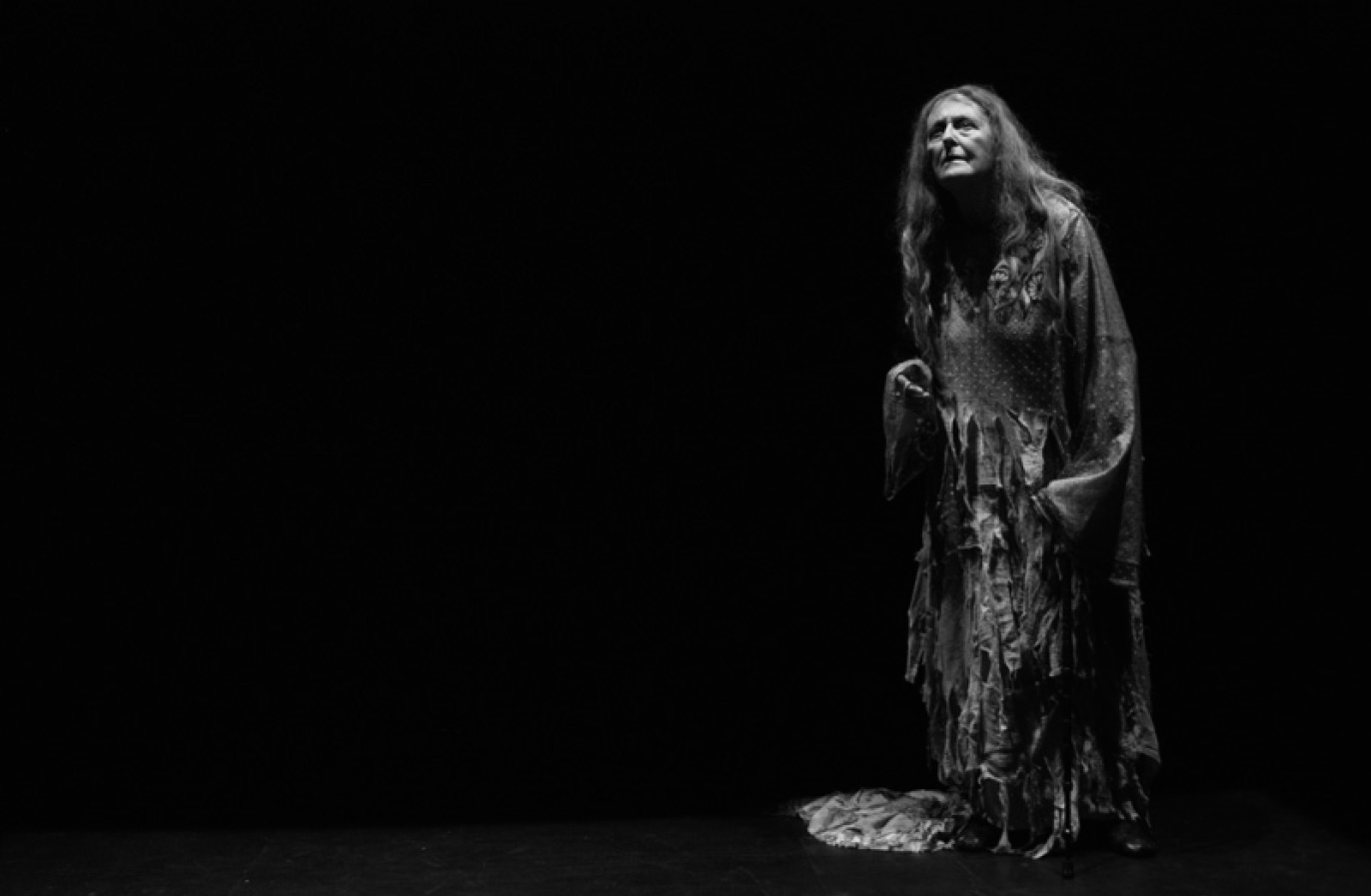 [Image 3: Rosemary Pountney, Footfalls, 2012, photograph by Jennifer Schnarr]
[Image 3: Rosemary Pountney, Footfalls, 2012, photograph by Jennifer Schnarr]
The costume matters – a tangle of tatters – recalling the materiality of Beckettian productions in this first wave of work, which therefore allows for new comparative research when we consider the other collections available at Reading, especially the materials relating to Billie Whitelaw and Jocelyn Herbert as well as Katherine Worth. What is worn is important – even when it is worn out – where the embodiment of the performer co-constructs theatre histories and our understanding of the texts themselves, which brings to mind Anna McMullan’s account of the materiality of Beckettian embodiment: ‘[the body] is presented as both sign and site, engine or matrix of production (of stories, semblances, voice, footfalls or hiccups) and fabric to be composed and recomposed with limited materials’ (2010, 125, emphasis added).
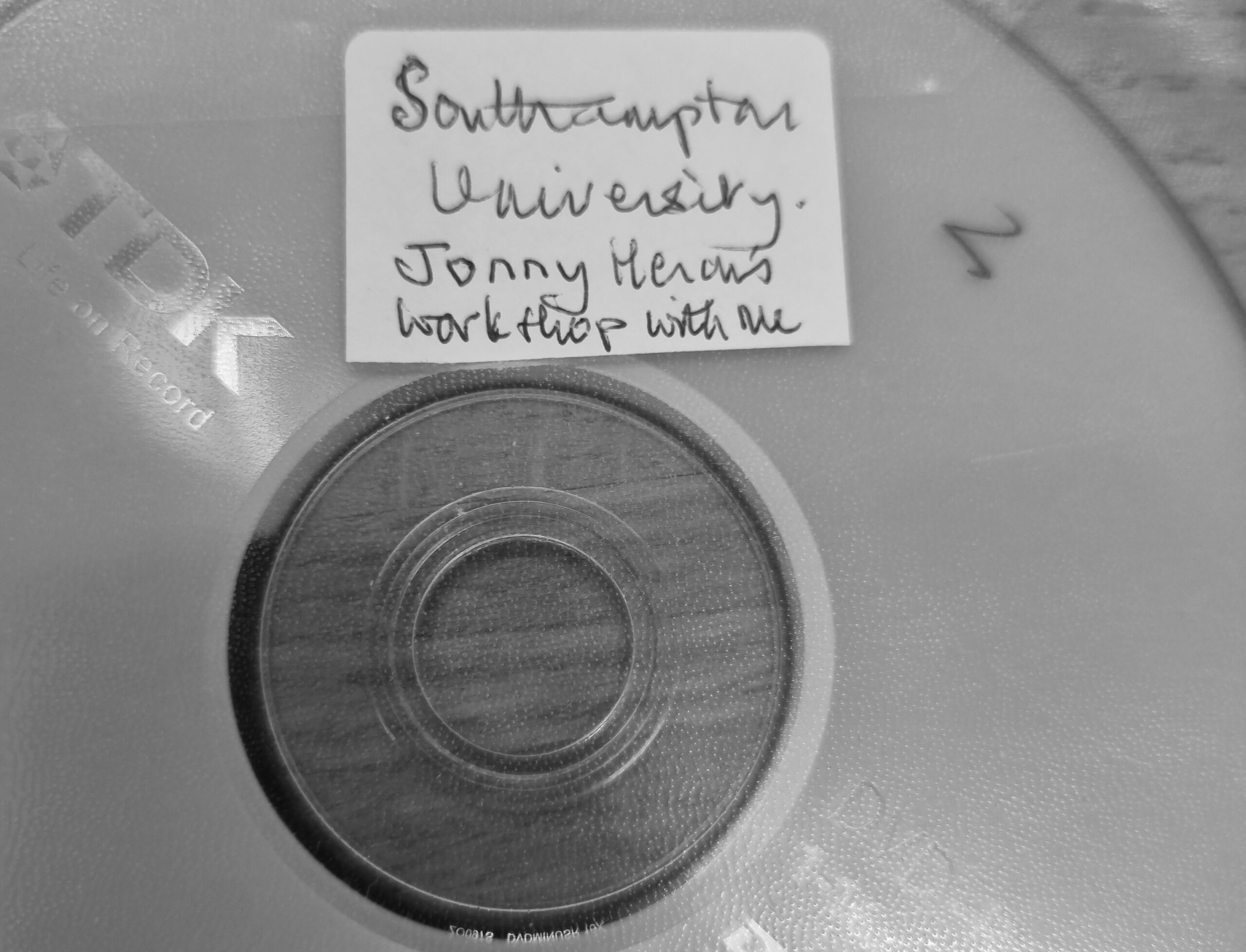 [Image 4: DVD handwritten note by Rosemary Pountney, image by author]
[Image 4: DVD handwritten note by Rosemary Pountney, image by author]
… so here I am … at the MERL in March… such a feeling buzzing between me… that sense of recognition… of self and community… the dense tangles of archival material… the box waiting patiently on the table… pencils to leave lessened traces upon items stored… so carefully curated by Rosemary herself… as she battled her illness… the box list leading me to memories of our workshops… my own writing and hers on discs and files… my illegible surname scribbled on a sticker… that time on the Solent with her and Julie… those students hearing her voice for the first time… that time on the Thames with her and Peter… and those profounds of mind… when reaching for the last file… underneath the letters to Barbara… now there’s a thing… an image floating at the bottom of the box… a card I had written towards the end… kept, collected and collated… I did not know that it was here… but there it is… the two of us in a box listed… so there we are…
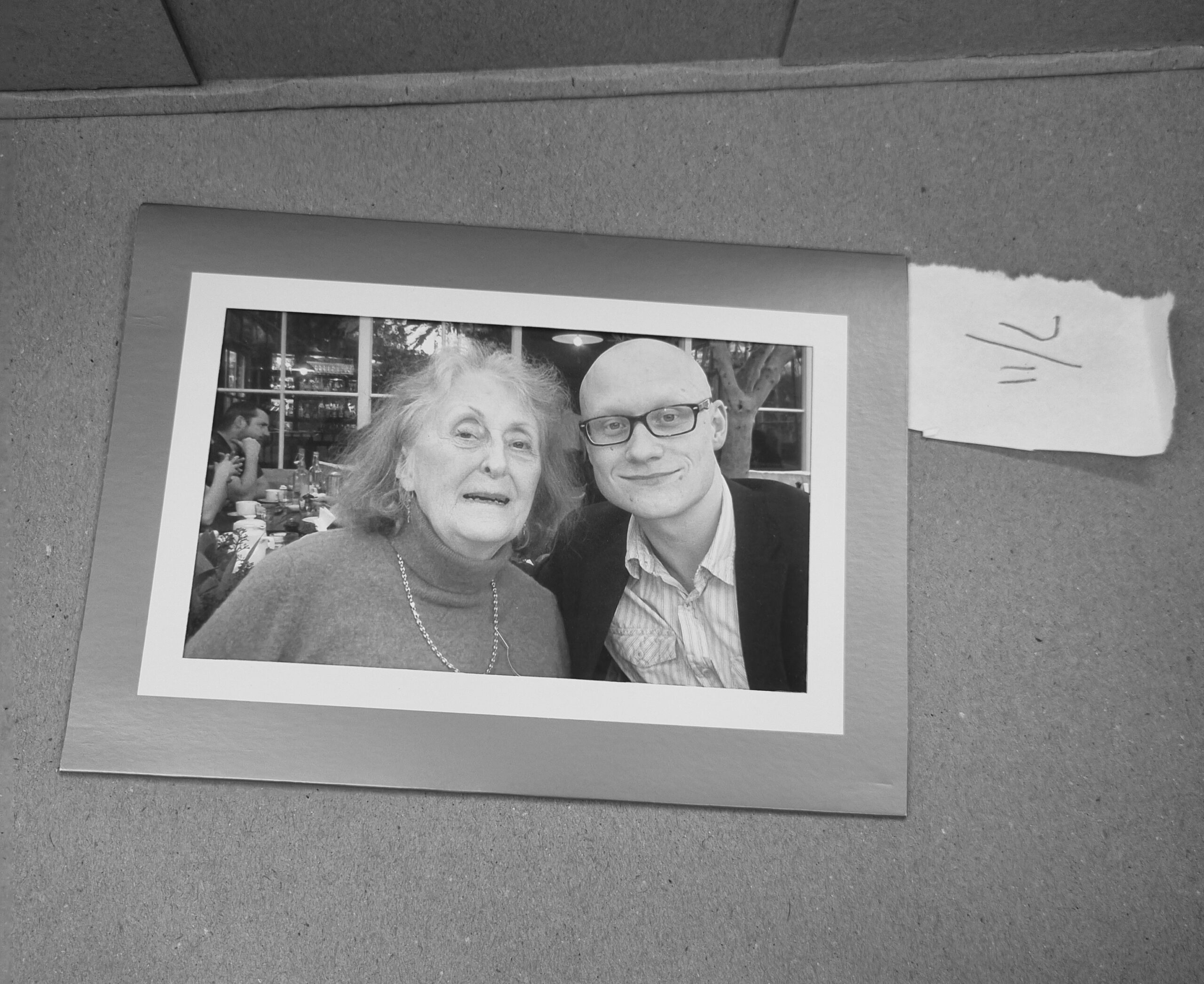 [Image 5: photograph found at the bottom of the archive box, image by author]
[Image 5: photograph found at the bottom of the archive box, image by author]
For more information on the actor and scholar Rosemary Pountney, see here: https://research.reading.ac.uk/staging-beckett/interview-rosemary-pountney/
Works Cited
Coetzee, JM (1973) ‘Samuel Beckett’s Lessness: An Exercise in Decomposition’, Computers and the Humanities, Vol. 7, No. 4, pp. 195-198.
Haahr and Drew (2000) ‘Possible Lessnesses’, https://www.random.org/lessness/
Heron, Jonathan (2018) ‘End/Lessness’ in Contemporary Theatre Review: Interventions, https://www.contemporarytheatrereview.org/2018/end-lessness/
Heron, Jonathan and Johnson, Nicholas (2014) “‘First both’: Introduction to ‘the Performance Issue.’” Journal of Beckett Studies 23:1, Edinburgh: Edinburgh University Press.
Johnson, Nicholas and Heron, Jonathan (2020) Experimental Beckett: Contemporary Performance Practices, Cambridge: Cambridge University Press.
McMullan, Anna (2010) Performing Embodiment in Samuel Beckett’s Drama. London & New York: Routledge.
Pountney, Rosemary (1988), Theatre of Shadows: Samuel Beckett’s Drama 1956–76, Buckinghamshire: Colin Smythe.
Salisbury, Laura (2023) ‘Grey Time: Anachromism and Waiting for Beckett’ in Grey on Grey: At the Threshold of Philosophy and Art’ ed. Vellodi & Vinegar, Edinburgh: Edinburgh University Press.
Taylor, Diana (2003), The Archive and the Repertoire: Performing Cultural Memory in the Americas, Durham, NC: Duke University Press.
